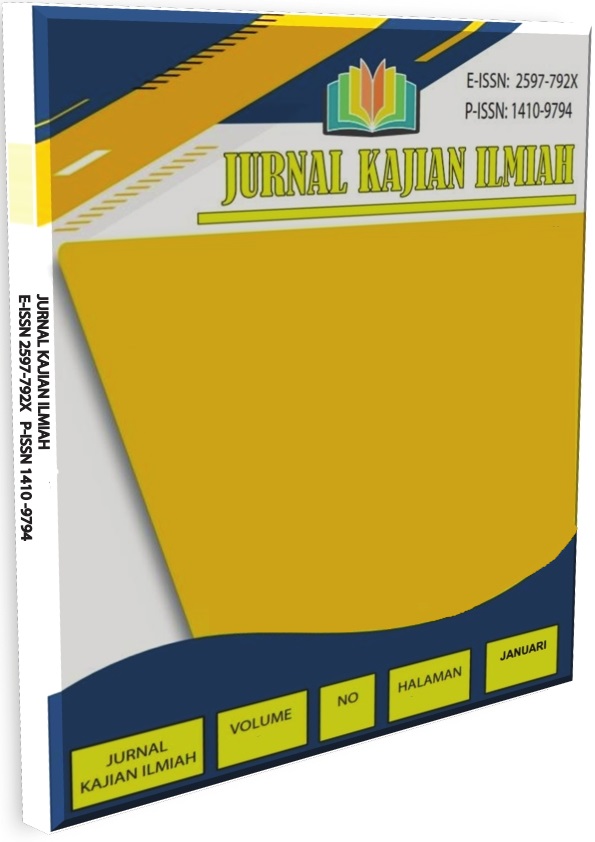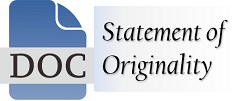Membangun Ekonomi GDP Indonesia; Pengaruh Strategis Pendidikan, Kesehatan, dan Investasi di Era Kenormalan Baru
DOI:
https://doi.org/10.31599/6em0bj46Kata Kunci:
Pendidikan, Kesehatan, Investasi, GDP.Abstrak
Tujuan penelitian ini mengetahui adalah membangun Ekonomi GDP Indonesia: Pengaruh Strategis Pendidikan, Kesehatan, dan Investasi di Era Kenormalan Baru sebagai pendekatan yang menghubungkan antara variabel Pendidikan, kesehatan, dan investasi, metode penelitian ini melibatkan survei dan analisis data menggunakan analisis regresi linear berganda dan uji asumsi klasik serta melakukan wawancara dan penyebaran serta studi literatur, setelah itu dilakukan pengolahan data dengan Eviews versi 12. Teknik penelitian menggunakan pendekatan kuantitatif dengan menggunakan data primer dan skunder yang dilakukan pada 10 tahun yaitu tahun 2014 sampai dengan 2024, hasil penelitian menunjukkan pengaruh positif signifikan pada variabel pendidikan, kesehatan dan investasi ketiganya memiliki peran integral dalam menggerakkan pertumbuhan ekonomi dan GDP di Indonesia. Pendidikan yang berkualitas meningkatkan produktivitas tenaga kerja dan inovasi. Kesehatan yang baik meningkatkan kualitas angkatan kerja dan produktivitas. Investasi dalam infrastruktur dan sektor swasta mempercepat distribusi, menciptakan lapangan kerja dan membentuk dasar kuat untuk pertumbuhan ekonomi yang berkelanjutan.
Unduhan
Referensi
Arar, K., Zohri, A. A., Zohri, A. A., Alhouti, I., Chaaban, Y., Sawalhi, R., & Salha, S. (2023). A critical analysis of education policy in turbulent times: A comparative study. Power and Education, 0(0), 1–22. https://doi.org/10.1177/17577438231168965
Badada, B., Delina, G., Baiqing, S., & Krishnaraj, R. (2023). Economic Impact of Transport Infrastructure in Ethiopia: The Role of Foreign Direct Investment. SAGE Open, 13(1), 1–12. https://doi.org/10.1177/21582440231162055
Belloumi, M., & Alshehry, A. S. (2021). The Causal Relationships Between Corruption, Investments and Economic Growth in GCC Countries. SAGE Open, 11(4). https://doi.org/10.1177/21582440211054425
Bennaceur, S., & Achchab, B. (2020). Impact of Health and Literacy on Economic Growth in Morocco. International Business Research, 13(7), 138. https://doi.org/10.5539/ibr.v13n7p138
Chitanava, M., Grigolia, M., & Labadze, L. (2011). Public Expenditures on Education and health in Georgia before and during the Global Crisis. In CASE-Center for Social and Economic Research on behalf of CASE Network (Vol. 101, Issue CASE Network Reports No. 101).
Dai, F., Liu, H., Zhang, X., & Li, Q. (2022). Does the Equalization of Public Services Effect Regional Disparities in the Ratio of Investment to Consumption? Evidence From Provincial Level in China. SAGE Open, 12(1). https://doi.org/10.1177/21582440221085007
Dira, A. F., Utomo, K. P., Finanto, M., Bangun, A., & Yani, E. (2023). Pengaruh Investasi dan IPM terhadap Pertumbuhan Ekonomi Hijau di Provinsi Kalimantan Timur. 11(2), 1437–1446.
Freire, A. R., Freire, D. E. W. G., de Araújo, E. C. F., de Almeida Carrer, F. C., PuccaJúnior, G. A., de Sousa, S. A., de Lucena, E. H. G., & Cavalcanti, Y. W. (2021). Socioeconomic indicators and economic investments influence oral cancer mortality in Latin America. BMC Public Health, 21(1), 1–6. https://doi.org/10.1186/s12889-021-10419-2
Hartini, Y. S., Lefanska, A. B. P., Ursia, A. A., Prasetyo, D. A. B., & Sugiharto, B. (2022). Prosiding Seminar Nasional Sanata Darma Berbagi “Pengembangan, Penerapan, dan Pendidikan ‘Sains dan Teknologi’ pasca Pandemi” (I. M. W. E. B. Bram (ed.); Desember 2). Sanata Dharma University Press.
Hutasuhut, J., Halim, A., & Syamsuri, A. R. (2023). Sistematika Karya Tulis: Artikel Ilmiah Bidang Ilmu Manajemen Sumber Daya (F. Abdullah (ed.); Februari 2). CV Merdeka Kreasi Group.
Iwan, Purwatiningsih, & Rahayu, E. I. H. (2022). Analisis promosi Dan Kualitas Pelayanan gocar (Gojek) Terhadap Kepuasan Konsumen Studi Kasus Pada Masyarakat Cengkareng Jakarta Barat. Jurnal Ilmiah Manajemen Dan Kewirausahaan, 1(1), 58–72.
Izzah, N. (2021). Forecasting of Indonesia’s Gross Domestic Product Amid Covid-19 Pandemic. El-Barka: Journal of Islamic Economics and Business, 4(1), 42–60. https://doi.org/10.21154/elbarka.v4i1.3016
Javed, R. (2021). Nexus Between Economic Growth, Health, and Education in Pakistan: an Ardl Bound Testing Approach. International Journal of Economics and Financial Issues, 11(6), 56–65. https://doi.org/10.32479/ijefi.12535
Krokeyi, W. S., & Niyekpemi, B. O. (2022). Human capital and economic growth nexus in Nigeria. Journal of Global Economics and Business, 2(6), 31–49. https://doi.org/10.31039/jgeb.v2i6.57
Lo, A. W., Philipson, T. J., & Von Eschenbach, A. C. (2016). Health, wealth, and the 21st century cures act. JAMA Oncology, 2(1), 17–18. https://doi.org/10.1001/jamaoncol.2015.4221
Lorenzoni, L., & Dougherty, S. (2022). Understanding Differences in Health Care Spending: A Comparative Study of Prices and Volumes Across OECD Countries. Health Services Insights, 15(1). https://doi.org/10.1177/11786329221109755
Martin, G., Grant, A., & D’Agostino, M. (2012). Global health funding and economic development. Globalization and Health, 8, 2–5. https://doi.org/10.1186/1744-8603-8-8
Mohapatra, S. (2022). Health Expenditures, Health Infrastructure and Health Status in SAARC Countries: A Panel Data Analysis. Vikalpa, 47(3), 205–216. https://doi.org/10.1177/02560909221113382
Nugroho, N. B., Shofawati, A., S, R. A., & Wibowo, W. (2023). International Journal of Advances in Scientific Research and Engineering ( ijasre ) Effect of Health , education , investment and Unemployment on GDP per Capita in Indonesia. IJASRE, 9(7), 81–86. https://doi.org/10.31695/IJASRE.2023.9.7.10
Odhiambo, N. M. (2021). Unisa Economic Research Working Paper Series Foreign Direct Investment and Economic Growth in Kenya : an Empirical.
Pokharel, P. R. (2018). Comparative analysis between public and private investment in human capital: A case of Nepal. International Journal of Business and Economic Development, 06(01), 38–47. https://doi.org/10.24052/ijbed/v06is01/c-03
Qiu, Y., Niu, J., & Zhang, L. (2022). The Influence of Foreign Direct Investment and Economic Development on Environmental Pollution. Proceedings of the 2021 International Conference on Culture, Design and Social Development (CDSD 2021), 634(Cdsd 2021), 67–71. https://doi.org/10.2991/assehr.k.220109.014
Rahman, M. M. (2011). Causal Relationship among Education Expenditure, Health Expenditure and GDP: A Case Study for Bangladesh. International Journal of Economics and Finance, 3(3), 149–159. https://doi.org/10.5539/ijef.v3n3p149
Rosli, N. S., Md Isa, M. A., & Mohamed, S. (2022). The Nexus of Economic Growth with Macroeconomic Variables and Corruption: Fresh Evidence from Vietnam. International Journal of Academic Research in Economics and Management Sciences, 11(3), 458–471. https://doi.org/10.6007/ijarems/v11-i3/14993
Settels, J. (2023). Conditional on the Environment? The Contextual Embeddedness of Age, Health, and Socioeconomic Status as Predictors of Remote Work among Older Europeans through the COVID-19 Pandemic. Sociological Perspectives. https://doi.org/10.1177/07311214231167171
Singh, H. P., Singh, A., Alam, F., & Agrawal, V. (2022). Impact of Sustainable Development Goals on Economic Growth in Saudi Arabia: Role of Education and Training. Sustainability (Switzerland), 14(21), 1–25. https://doi.org/10.3390/su142114119
Tran, D. B. (2022). Health Benefits of Education: Comparative Evidence from Vietnam and Thailand. SAGE Open, 12(2). https://doi.org/10.1177/21582440221085261
Yamey, G., Beyeler, N., Wadge, H., & Jamison, D. (2017). Invirtiendo en salud: El argumento económico. Informe del foro sobre Inversión en salud de la cumbre mundial sobre innovación para la salud 2016. Salud Publica de Mexico, 59(3), 321–242. https://doi.org/10.21149/8675
Yu, Y., Alvi, S., Tufail, S., Nawaz, S. M. N., Peng, M. Y. P., & Ahmad, N. (2022). Investigating the role of health, education, energy and pollution for explaining total factor productivity in emerging economies. Humanities and Social Sciences Communications, 9(1), 1–7. https://doi.org/10.1057/s41599-022-01083-x











_-_Copy1.jpg)




